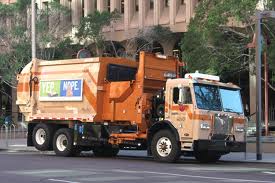WASHINGTON, D.C. – April 18, 2013 – (RealEstateRama) — The Mayor of Phoenix, Arizona, has launched a new initiative aimed at encouraging recycling, with a particular emphasis on investment in environmental education across the city’s residencies, businesses, schools and colleges.

City Mayor Greg Stanton launched the new 40 by 20 program in February, which aims to encourage residents and business owners to increase their recycling rates by 300% before 2020.
AZCentral.com said that the Mayor had hired two external consultants on $200,000 salaries to develop a recycling program and a marketing campaign to reach out to people within the city.
The program aims to keep 40% of recyclable waste out of landfill sites in the city by the year 2020, which will require extensive gains to be made across residential and commercial recycling policy.
At present, Phoenix performs worse than the national average, managing to keep just 13% of its recyclable waste away from landfill. The program was launched to help Phoenix achieve the San Francisco model of recycling, which is 80% of the way towards achieving a Zero Waste policy for recyclable materials.
Education is receiving a major drive, with “aggressive” outreach programs promised to bring the message to businesses and residents across the city. The policy will see more of a focus on the value of recycling in schools and colleges, in the hope of inspiring a change in behavior in families.
Unlike in San Francisco, residents will be able to choose to comply with the 40 by 20 initiative. In San Francisco, state enforcers can impose fines for those that fail to comply with the appropriate waste sorting regulations.
John Trujillo, the acting public works director for Phoenix, said that with the help of education, the city would comfortably achieve its targets by 2020. “We believe that when we focus on educating the public about the various recyclable materials and the benefits of recycling, there is no doubt we can accomplish this 40 percent diversion goal.”
Increasing recycling rates can reduce the amount of new manufacturing that is required, providing reductions in emissions and energy savings.
At a time when the US is facing clear challenges over providing energy for a long-term future, improving the volume of recycling now could make a tangible impact.
Daniel Yergin, a leading author on energy security in todays global political environment, said that improving recycling rates would help drive down demand for energy and reduce carbon emissions.
“Recycling means that there is less waste heading to landfill or incinerators. That means lower emissions, and potentially lower aggregate energy demand across the manufacturing sector. Recycling is a crucial part of a responsible commitment to tackling future energy challenges.”
The Phoenix program will roll out over the coming months and extend for the full seven-year period to 2020. Initially, 375,000 residents already in possession of recycling bins will be informed of the best practices for sorting their waste for recycling to prevent wastage and encourage greater compliance.
Alongside the education and recycling side of the campaign, the city is also in discussions with
several organizations over integrating so-called ‘green area’ waste sites to reduce the environmental impact of landfill.


